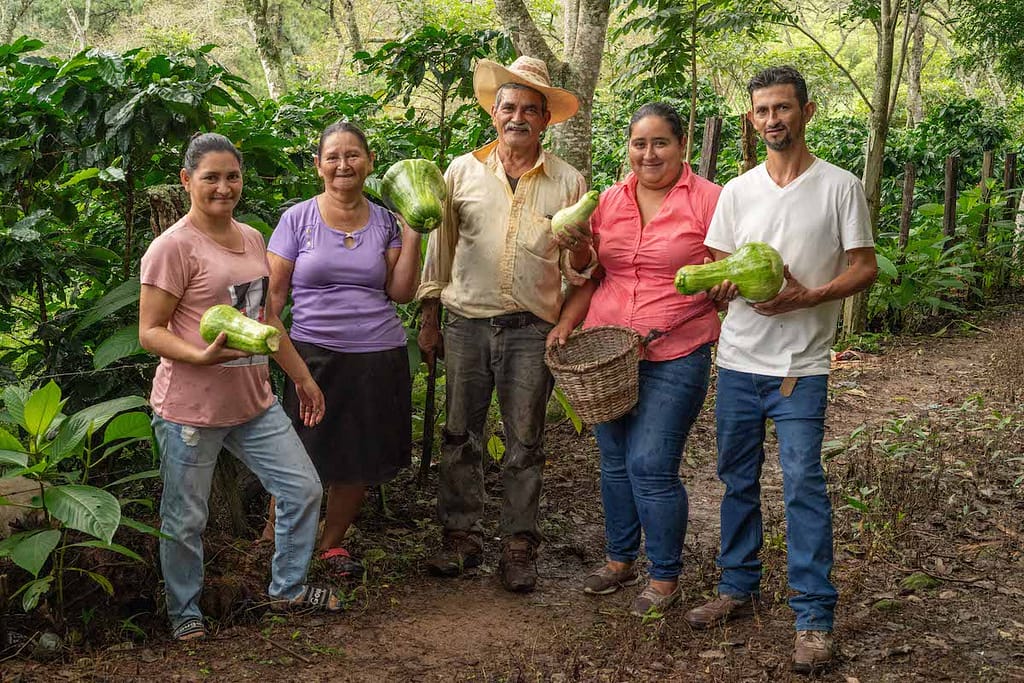[[{“value”:”Image: International Coffee Partners (ICO)
In its Annual Report for 2023, International Coffee Partners (ICP) has detailed challenges faced by the global coffee sector and the organisation’s successes in supporting smallholder farming communities.
“In a year marked by climate change-induced disruptions, volatile markets, and soaring production costs, ICP worked closely with its implementing partner, Hanns R. Neumann Stiftung (HRNS), to promote sustainable farming practices, income diversification, and resilience-building initiatives across its focus countries,” ICP said in a statement.
In 2023, ICP reached 36,306 households in coffee farming communities through its projects, with an 80 per cent adoption rate for Good Agricultural Practices, compared with 71 per cent in 2022. It also saw a 92 per cent adoption rate for climate-smart agricultural practices – an increase from 88 per cent in 2022.
Women’s participation in project activities also grew, reaching 42 per cent compared with 35 per cent the previous year.
The report also highlights challenging conditions such as the severe impact of extreme weather events on coffee production in key regions such as Brazil, Central America, Ethiopia, and Tanzania.
In Ethiopia, unusual rainfall patterns and even snowfall in some areas were reported, while Tanzania was impacted heavily by El Niño, leading to infestation of pests and diseases, flooding, and soil erosion. On the other hand, there were droughts, which triggered a reduction in yields and compromised coffee quality.
“These adversities disproportionately affected smallholder farming families, whose livelihoods depend on coffee cultivation,” says ICP.
In response, ICP prioritised promoting agroecological practices and encouraging crop and income diversification to strengthen the resilience of coffee farming households.
Together with HRNS, ICP supported farmers in adopting sustainable practices and diversifying their sources of income. The organisation also emphasised the importance of gender equality and youth involvement in all farming families to promote equitable and inclusive development.
In Brazil, ICP introduced income diversification strategies such as beekeeping and soybean cultivation, reaching 536 farmers through training, while improving coffee quality for access to specialty markets.
In Honduras, over 2400 families benefited from crop diversification with 67 plots and 170 household gardens, and 153 new businesses were created, of which 80 per cent are led by women.
In Uganda, coffee yields improved from 1 to 1.8 kilogram per tree due to better farming practices introduced through the ICP project, and 400 farmers were trained in nutritional gardening.
Since ICP’s founding in 2001, investors have committed US$22.6 million (€20.9 million) to the organisation’s projects, which have reached 118,582 across 13 countries.
“Looking ahead to 2024, ICP remains focused on expanding its efforts to promote climate-smart practices, income generation, and food security, especially among vulnerable groups such as female-headed households,” says ICP.
The post ICP 2023 Annual Report details success despite global challenges appeared first on Global Coffee Report.
“}]]


